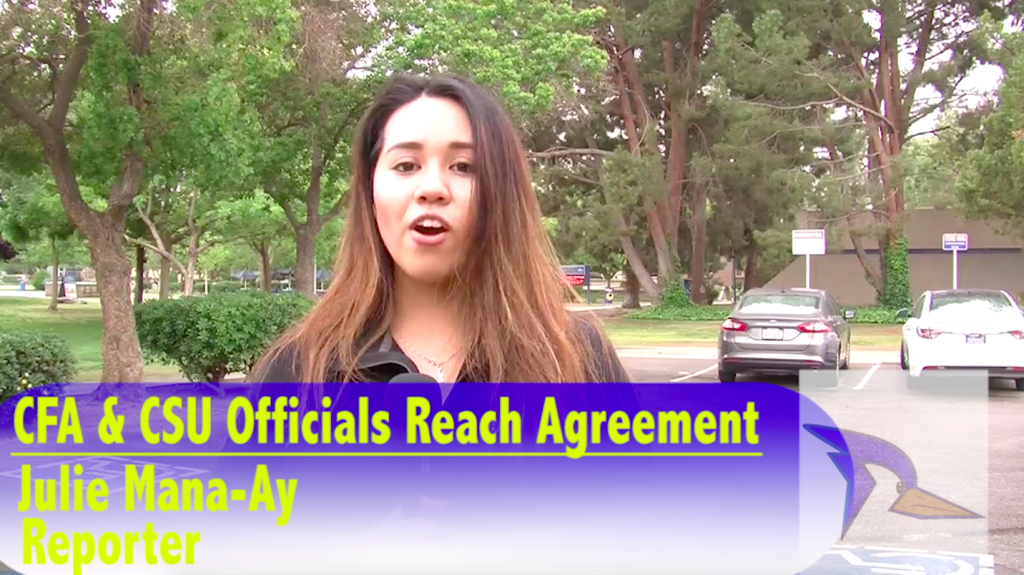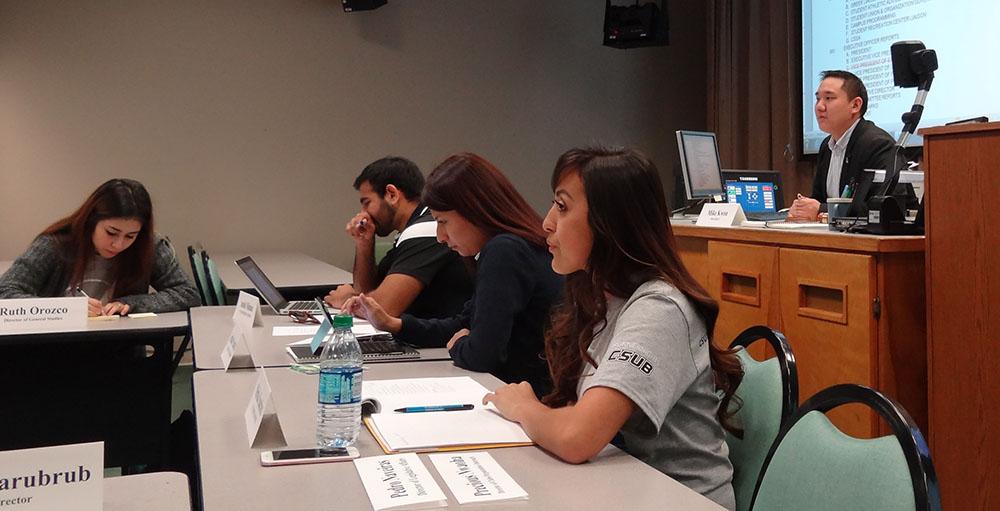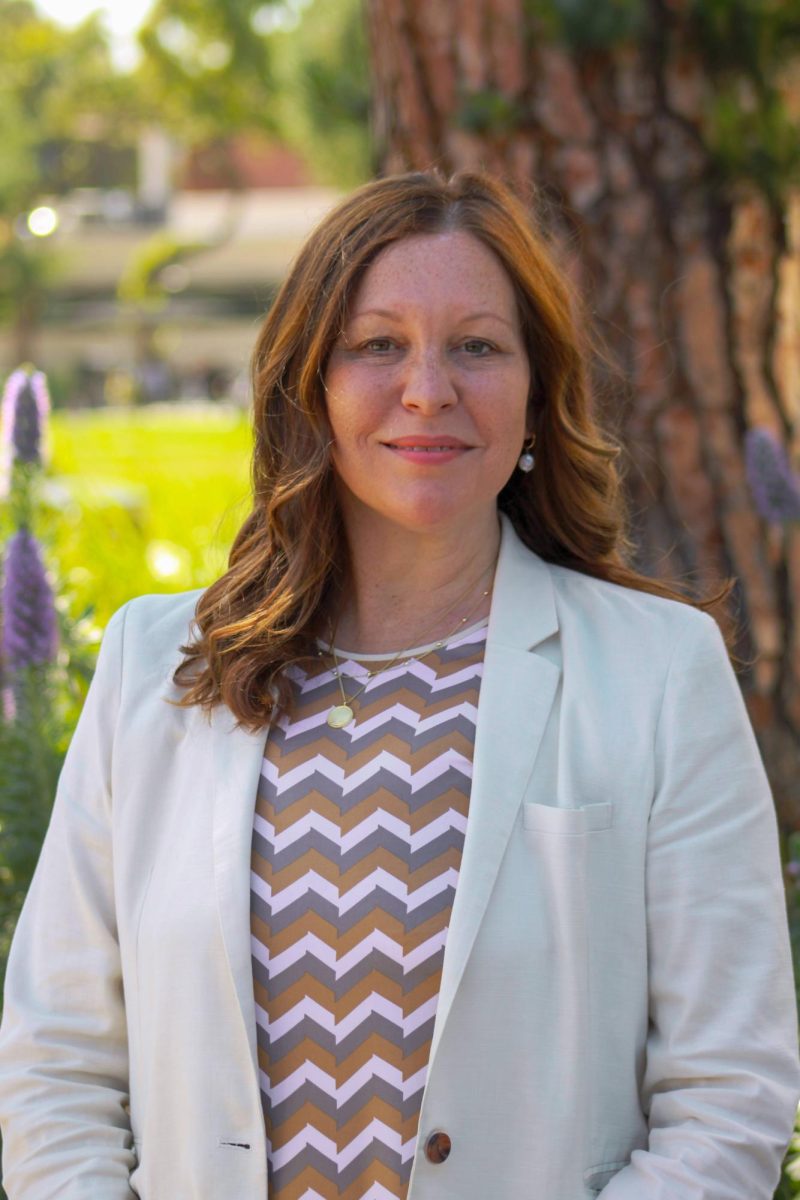The Runner Staff
As the California Faculty Association salary negotiations with the Chancellor’s office continue, CSU Bakersfield prepares for the proposed five-day-strike the CFA announced last week. Though the negotiations are still in their fact-finding stage, the CFA is preparing for all CFA faculty to strike April 13-15, 18 and 19 should the negotiations not end in an agreement.
Associate Vice President of faculty affairs David Schecter emphasized a strike consisting of all 23 CSU campuses is a scale unheard of in previous negotiations, so there are still many unknowns.
“We need to understand more about what the CFA’s intentions are and what the impact might be on our campuses before knowing exactly how to respond,” said Schecter.
The Strike
CFA Chapter Chair of the Faculty Rights Committee Bruce Hartsell said participating faculty members will cancel their classes and peacefully picket at all five entrances to campus.
“In its simplest form a strike is withholding labor, so anyone who is withholding labor is participating in the strike,” said Hartsell.
Hartsell said that anyone who crosses the picket line is violating and opposing the strike. For faculty, this includes any job-related activities such as checking email, grading papers or advising students.
During the proposed strike, the Chancellor’s office has made it clear that campuses will remain open.
“The goal will be business as usual, I think is a fair way to say it….classes will absolutely take place during those five days and faculty will have to choose whether or not to teach those courses or strike,” said Schecter.
Hartsell anticipated that response, adding faculty members will be informing their students on what their choice means for each of their classes. Some have mentioned assigning alternate homework or simply removing a week from their scheduled syllabus.
“We intent to make it clear that classes will not be held, although the administration will say that classes will be open, intending to mislead people,” said Hartsell. “The campus is open on many days during December that no classes are held, so saying classes are open and classes are being held are two entirely different things.”
He emphasized this would not simply be 5 days off for students.
“Students shouldn’t assume anything about their coursework,” Hartsell said.
Philosophy professor Maria Paleologou said the strike is fair.
“We should go on a strike,” said Paleologou. “It is a way to get the administration to listen to us and it is totally justified.”
Effects
Schecter said there is currently no way to estimate the effects caused by the proposed strike on things like faculty paychecks or student fees.
“Faculty are under contract to work. Period,” Schecter said.
He said until the fact-finding stage is over, there isn’t much the administration can anticipate.
“I can say that a strike would impact students but the outcome of that is undecided at this time. We will take our guidance from the chancellor’s office on how to proceed,” said Schecter.
The administration is currently focused on more predictable effects, such as traffic issues and public safety.
“Whenever you mix cars and people there are potentials for problems, so we will be working closely with public safety, both the University Police Department and possibly [the] Bakersfield Police Department to make sure everything is done to keep people safe,” said Schecter.
English major Althea Martinez weighed the effects the strike may have on students.
“I don’t know how it’s going to affect students but as with any strike there’s going to be some changes, whether it takes anything away in the classrooms or if it’s just an inconvenience.”
Support
Though not all CSUB faculty are members of the CFA, Hartsell believes the majority of his faculty colleagues support the strike.
“I think the faculty members are fed up with the disrespect the administration has shown. In fact I hear more complaints from faculty that 5 percent is not enough than I do from faculty members who feel we shouldn’t be striking.
Though Hartsell says there is no official direct connection, the difficulties of the quarter to semester change may have fueled the strike support.
“Certainly the imposition of the semester system, in opposition to the preferences of many of the faculty members, adds to our perception that many of the administration does not respect us,” said Hartsell.
Neither Schecter nor Hartsell has experienced much student dialogue on the subject.
“In general, students tend to be supportive when they find out how little faculty members are paid compared to what they think they’re paid. Of course there are exceptions on all sides,” said Hartsell.
Liberal studies major Jessica Paniagua is one of those students.
“For all their hard work I think only five days is not a big deal, “ said Paniagua. “I’m not really worried about grades because it’s up to students to be responsible for their homework and things during the strike, so I don’t think it will be that big a deal.
“I hope that they (the teachers) get the 5 percent raise, or even some kind of compromise, but I mean, teachers should be able to pay their mortgages.”
Hartsell also said that because the union received a sanction from the Central Labor Union, members of other unions involved with the CLU will not cross their picket line. This can include mail delivery workers as well as food distributors. Schecter said it wouldn’t be his place to speculate on the effects of choices made by those outside of the school.
“That would be up to those members of those unions to figure out if they want to associate with the CFA strike,” said Schecter.
Hopefully Hypothetical
Schecter is hoping for a resolution before the April dates come, but if a strike does occur, the campus will be prepared.
“We’re always hopeful that a settlement can be reached at the bargaining table,” said Schecter. “That’s the goal of bargaining…and it would be unfortunate if there were no resolution this year.”
This seems to be the one aspect Schecter and Hartsell agree upon.
“These are folks we work with everyday and respect,” said Schecter.
Hartsell said he hopes the administration takes their preparations seriously and reflect it in their negotiations.
“The best way to avoid a strike it to prepared for a strike… I don’t know many people who would prefer to strike than prefer to get a 5% raise,” said Hartsell. “…That’s why the shirts say ‘We don’t want to strike but we will,’ and we really don’t want to, but if that’s what it takes, we’re willing to.”










